 | Bruce Chong | Associate Director, Arup Management Consulting, Hong Kong
Bruce Chong is an Associate Director at Arup Management Consulting, focusing on resources efficiency, green infrastructure, smart and resilient city planning. He is the Skill Leader of Resilience City and Sustainable Infrastructure Design Leader in East Asia region of Arup, working on master-planning, strategic resources planning and building projects in Hong Kong, China and other South-East Asian countries. Bruce is a Cambridge Overseas Scholar, and a Research Fellow in the Sydney University. He received the Young Green Leader Award in 2013, launched by the EV Division of HKIE. His latest research interest is on energy economics to examine circular economy and resources consumption in global supply chain. Bruce recently wrote a book on ‘Smart-Green-Resilient’, published by HKU Press in 2016. | W4 |
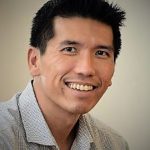 | Winston Chow | Assistant Professor, National University of Singapore, Singapore
Chow’s research focuses on the physical processes, impacts, and mitigation of urban heat islands, urban vulnerability to climate change, and sustainable urban climatology with a focus in tropical and subtropical cities. The author of 22 academic journal articles, he has conducted interdisciplinary, multi-method urban climatology studies in cities such as Arizona, Chicago, and Singapore and is an expert on heatwaves, droughts, and flash floods. Dr. Chow has examined geographical trends of urban mortality and morbidity data due to extreme urban heat, investigated how we can reduce future urban vulnerability to drought through water modelling and other planning and policy approaches, and looked at how geographical spatial scales play a key role in urban climate related adaptation techniques. | P2 | W1 |
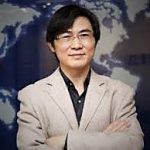 | Minhan Dai | Chair Professor, State Key Lab of Marine Environmental Science, Xiamen University, China
Minhan Dai currently serves as the Director of the State Key Laboratory of Marine Environmental Science. Minhan Dai’s research interests include carbon and trace metal biogeochemistry in marginal and estuarine systems, and geochemistry of radioactive elements in surface and ground waters. Dai earned his B.S. degree from Xiamen University and his Ph.D. from Université Pierre & Marie Curie (Paris VI), France in 1995. After a Doherty Foundation Postdoctoral Fellowship at Woods Hole Oceanographic Institution (WHOI), he took a faculty position at Xiamen University in 1998 and was elected as Academician of Chinese Academy of Science in 2017. Minhan Dai has published over 130 papers in leading international journals. He has served on many national and international committees, such as a SSC member of SOLAS and GEOTRACES. | P3 | W3 |
 | Michael Davies| Professor of Civil Engineering, Pro Vice Chancellor (Research) (Vice-Chancellor's Office), University of Sussex, UK
Prof. Michael Davies is Pro-Vice-Chancellor for Research at the University of Sussex. His research interests range from land reclamation techniques to soil reinforcement, slope stability, earthquake engineering and mathematical modelling of soils. In addition to his research in mainstream geotechnical engineering, he has worked in collaboration with engineers and scientists at the interface between geotechnical engineering and engineering geology and other disciplines, such as climatology and biology. He is currently the Chair of the Board of Directors for the Sussex Innovation Centre and a member of the Greater Brighton Economic Board. | P2 | W2 |
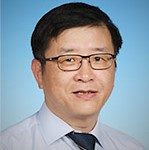 | Jian-Ping Gan | Chair Professor, Division of Environment and Sustainability, The Hong Kong University of Science and Technology, Hong Kong
Prof. Gan has been conducting extensive scientific studies on ocean circulation, marine ecosystem dynamics and numerical ocean modeling in the China Seas. The research inter-links the processes over estuary-shelf-open ocean basin. Interdisciplinary research in coupled physical-biogeochemical dynamics through numerical modeling, field measurement and process study in the ocean are developed. | W3 |
 | Stephanie Glendinning | Professor, Civil Engineering and Dean of Strategic Projects, Newcastle University, UK
Prof. Stephanie Glendinning is Professor of Civil Engineering and Dean of Strategic Projects. Prof. Glendinning provides academic, professional and industrial leadership to a large suite of undergraduate and postgraduate programmes. Originally working in geotechnical engineering research, Prof. Glendinning's current interests lie primarily in infrastructure resilience. Dr. Glendinning pioneered the concept of the Urban Laboratory, an initiative aimed at developing and using full-scale operational infrastructure as a laboratory in which to develop research and impact. This approach is fundamental to the University's development of Science Central. | P1 | W2 |
 | D. Vaughan Griffiths | Professor of Civil Engineering, Colorado School of Mines, Colorado, USA
Vaughan Griffiths’s interests lie in application of finite element and risk assessment methodologies in civil engineering. He has authored over 340 research papers, including some of the most highly cited in the geotechnical engineering research literature. He is the co-author of three textbooks that have gone into multiple editions including the Chinese language on “Programming the Finite Element Method”, “Risk assessment in Geotechnical Engineering” and “Numerical Methods for Engineers”. He gives regular short-courses for practitioners with recent offerings in New Zealand, Australia, Colombia, Norway and USA. Professor Griffiths is a former ASCE Director, an editor of Computers and Geotechnics, and on the Advisory Panel of Géotechnique. In 2017, he received the H. Bolton Seed Medal from the ASCE/Geo-Institute and was named the Cross-Canada Lecturer by the Canadian Geotechnical Society. | P2 | W2 |
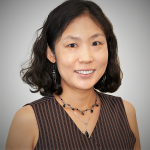 | Eun-Soon Im | Assistant Professor, Division of environment and Sustainability and Department of Civil and environmental engineering, The Hong Kong University of Science and Technology
Prof. Im used to work as a research scientist at the National Institute of Meteorological Research (Korea), International Centre for Theoretical Physics (Italy), and Singapore-MIT Alliance for Research and Technology (Singapore). She specializes in the development and improvement of the Regional Climate Model (RCM), and has studied regional climate changes over various regions worldwide. The main goal of her research is to advance understanding of the potential changes in regional climate due to anthropogenic forcings (e.g. greenhouse gas emission, land-use change) and to produce high-quality climate information for comprehensive impact assessment, especially in the regions characterized by complex physiographical features. | W1 |
 | Daniel Kreeger | Executive Director, Association of Climate Change Officers Co-Founder, Compact of Colorado Communities, USA
As the co-founder and architect of ACCO's education, training and credentialing programs, Daniel Kreeger has a unique familiarity of climate change and sustainability initiatives being undertaken across the public and private sectors. Dan has led ACCO’s programming efforts since 2008, as well as the establishment of its certification and training programs. His experience includes producing flagship programs for the White House Council on Environmental Quality and U.S. Environmental Protection Agency. In 2017, Dan co-founded the Compact of Colorado Communities with Aspen Mayor Steve Skadron and now administers the Compact in addition to ACCO. Dan has since been asked by the State of Maryland to build the first state-administered climate academy in the United States. He is a recognized expert on climate change workforce competencies and has served on U.S. government review teams for the IPCC 5th Assessment in 2014 and numerous Federal agency grant committees. | P3 | W4 |
 | Ir. Dr. Julian Kwan | Chief Geotechnical Engineer, Geotechnical Engineering Office, Civil Engineering and Development Department, The Hong Kong University of Science and Technology, Hong Kong
Ir Dr Julian Kwan is now a Chief Geotechnical Engineer in the Geotechnical Engineering Office (GEO), Civil Engineering and Development Department. He joined GEO after obtaining his PhD degree from the Imperial College, London. He is in charge of technical development work in GEO to support the formulation of slope safety policies. In recent years, Dr Kwan steered a series of technical development initiatives for enhancing emergency preparedness against landslides under extreme weather. Those include assessments of extreme landslide scenarios and development of landslide detection system. | P2 | W2 |
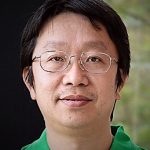 | Alexis Lau | Professor, Division of Environment and Sustainability; Professor, Department of Civil and Environmental Engineering; Director of the Atmospheric Research Center, The Hong Kong University of Science and Technology, Hong Kong
Prof. Lau's research specializes in Air Quality, Weather and Climate, and his techniques include analysis of large-scale geophysical datasets, numerical models, and in-situ and satellite remote sensing. He has published over 100 peer-reviewed journal articles and served on a number of green groups as well as many government committees in Hong Kong. Internationally, he is member of the Scientific Advisory Group of the World Health Organization Panel on the development of a Global Platform on Air Quality and Health, and an expert member of the Environmental Sustainable Transport Program of the United Nations Center for Regional Development. | W3 |
 | Edwin Lau | Chief Engineer, Land Drainage Division of the Drainage Services Department, HKSAR Government
Ir Edwin SC LAU is a civil engineer by profession with over 25 years of working experience. Mr LAU obtained his master degree in Civil Engineering (Construction Management) in 1996 and Environmental Management in 2003. He has worked in the Drainage Services Department and the Civil Engineering and Development Department of HKSARG, with participation in planning, design and construction of drainage and sewerage projects, and new development area projects. Ir LAU is currently the Chief Engineer of Land Drainage Division of the Drainage Services Department, responsible for planning and formulating flood control strategy, drainage improvement and river re-vitalization measures; identifying and implementing research and development activities; and climate change issue for the department.
| P2 |
 | Anthony Leung | Assistant Professor, Department of Civil and Environmental Engineering, The Hong Kong University of Science and Technology, Hong Kong
Prof Anthony Leung is an Assistant Professor and the Associate Director of the Geotechnical Centrifuge Facility at the HKUST. He has been conducting research into soil-vegetation interaction and its implication in civil engineering problems such as rainfall-induced slope stability and wind-induced tree uprooting for more than 10 years. He is currently leading and coordinating a number of research projects in Hong Kong and the U. K., with regard to the use of vegetation to enhance the sustainability and resilience of civil infrastructure in urban cities. Prof. Leung is an editorial board panel member of prominent journals including Landslide and Canadian Geotechnical Journal. He is also the current Editor-in-Chief of the Bulletin of the International Society of Soil Mechanics and Geotechnical Engineering. | W2 |
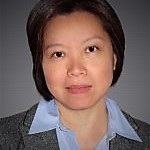 | Ruby Leung | Battelle Fellow of Pacific Northwest National Laboratory, US Department of Energy, USA
Dr. L. Ruby Leung is a Battelle Fellow at Pacific Northwest National Laboratory and an Affiliate Scientist at National Center for Atmospheric Research. Her research broadly cuts across multiple areas in modeling and analysis of climate and the hydrological cycle including land-atmosphere interactions, orographic processes, monsoon climate, climate extremes, land surface processes, and aerosol-cloud interactions. Dr. Leung is the Chief Scientist of Energy Exascale Earth System Model (E3SM) supported by Department of Energy. She has organized key workshops sponsored by DOE, NSF, NOAA, and NASA, and served on advisory panels and NRC committee that define future priorities in climate modeling, hydroclimate, and water cycle research. | P1 | W1 |
 | Carlos H. R. Lima | Professor, Civil and Environmental Engineering, University of Brasilia, Brazil
Dr. Carlos Lima obtained his PhD in Earth and Environmental Engineering from Columbia University (USA) in 2009 and in 2010 he joined the Department of Civil and Environmental Engineering of University of Brasilia (Brazil) as Assistant Professor. In 2016 he spent a one-year sabbatical visit at University of California, Irvine (USA). Dr. Lima has expertise in hydrology, hydroclimate, stochastic modeling, Bayesian methods, machine/deep learning models and multi-scale hydroclimatic analysis. He is also experienced in working on large scale climate oscillation such as ENSO forecasting, and the development of climate informed time series models for reservoir inflows, floods, droughts, rainfall, hydroenergy and active fires in the Amazon rainforest. He has also worked with the World Bank to review the financial risk instruments developed by UTE for the hydropower and energy sector of Uruguay. More recently, he has published research papers focusing on the estimation of rainfall Intensity-Duration-Frequency curves in a changing climate. | P1 | W2 |
 | Andy Lipkis | Founder & President of TreePeople, USA
Andy Lipkis is a practical visionary who began planting trees to rehabilitate smog and fire damaged Los Angeles area forests when he was 15 years old. He founded TreePeople at age 18 and has served as its President since 1973. TreePeople is a guiding light for urban climate resilience around the world. For more than 40 years this organization has created a greener future for Los Angeles by inspiring and activating people, along with their local governments, to plant and care for trees and harvest the rain. Since its founding, TreePeople volunteers have been responsible for the planting of 2 million trees and counting. Its environmental education program reaches more than 200,000 students per year, with millions of children touched over the decades. With climate change impacts already creating a chronic emergency for American cities, Andy’s work has demonstrated promising new ways for government agencies to collaboratively reshape urban tree canopy, water infrastructure, and the urban landscape to save lives and grow a more livable, sustainable, and climate-resilient future. | P3 | W4 |
 | Christine Loh | Chief Development Strategist, Institute for the Environment, The Hong Kong University of Science and Technology, Hong Kong
Prof. Christine Loh, SBS, JP, OBE, Chevalier de l’Ordre National du Mérite, is Chief Development Strategist at the Hong Kong University of Science and Technology. She was Under Secretary for the Environment in the HKSAR Government (2012-17) and a Member of the Hong Kong Legislative Council (1992-97 and 1998-2000). Loh has been active in public policy and politics since the 1980s. She founded and was the CEO of the non-profit think tank, Civic Exchange (2000-12), and helped to established several non-profit organizations in Hong Kong related to the environment, equal opportunity, arts and culture, as well as human rights. Her expertise in environmental policy is well-known, including advising the World Health Organization and International Energy Agency on issues relating to air pollution and public health. | P1 | W4 |
 | Mengqian Lu | Assistant Professor, Department of Civil and Environmental Engineering, The Hong Kong University of Science and Technology, Hong Kong
Prof. Lu’s research lies in the interdisciplinary intersection of atmospheric dynamics, hydrometeorological extremes, prediction & forecast using data science approach. Her extreme prediction paper was the featured contribution to the leading journal, Water Resources Research, of the Year 2013; and the American Geophysical Union recognized the integrated statistical and physical based approach, and the success of the predictive model as one that “could open the door for improved flood prediction”. Her recent finding published in the Journal of Climate achieved an unprecedented prediction skill for monthly precipitation extremes at various regions, using extracted signals from an innovative global time-lagged spatial patterns of the coupled ocean-atmosphere system. The goal of her research is to improve the predictability of extremes that could support nature hazard risk mitigation and management. She is leading the Global Flood Initiatives, Asia-Pacific Sector collaborating with the Columbia Water Center, the Earth Institute at Columbia University, on hydrometeorological extremes studies. | P2 | W2 |
 | Kira Matus | Associate Professor, Division of Environment and Sustainability and Division of Public Policy, The Hong Kong University of Science and Technology, Hong Kong
Prof. Kira Matus's primary research focus is at the intersection of innovation, sustainability science, and public policy, focusing on sustainable production-consumption systems. She looks at how policy can incentivize innovation- but also at how innovation can feed-back into policy, and when new technologies allow for, and sometimes even demand, new approaches to policy on the part of public, private and civil society actors. Prof. Matus was a Senior Lecturer in Innovation and Sustainability and Deputy Head of Department at UCL STEaPP, and Assistant Professor of Public Policy and Management at the LSE. She was also a Ruffalo Sustainability Fellow in the Sustainability Science Program at Harvard University | P3 | W4 |
 | Charles Ng | Associate Vice-President for Research and Graduate Studies, The Hong Kong University of Science and Technology, Hong Kong
Prof. Charles W.W. Ng is an Associate Vice-President for Research and Graduate Studies at HKUST, CLP Holdings Professor of Sustainability and a Chair Professor in the Department of Civil and Environmental Engineering of HKUST. His overarching research interest is geo-energy and geo-environmental engineering towards more sustainable and resilient built environments. Prof. Ng is currently leading a themed-based research project on understanding debris flow mechanisms and mitigating risks. He is currently the President of the International Society of Soil Mechanics and Geotechnical Engineering (ISSMGE) and is also an Associate Editor of the Canadian Geotechnical Journal, an Editor of Landslides, and editorial board member of many other international journals. | W2 |
 | Ye Qi | Professor, School of Public Policy and Management, Tsinghua University, China
Ye Qi is the Cheung Kong Professor of Environmental Policy and Management at Tsinghua University’s School of Public Policy and Management, and the Volkswagon Professor of Sustainability at Schwarzman College. He is Senior Fellow at the Brookings Institution and the Director of Brookings-Tsinghua Center for Public Policy. Before returning to China in 2003, he taught ecosystem management and climate change science at the Department of Environmental Science, Policy and Management at University of California, Berkeley from 1996 through 2003. Ye Qi received his Ph.D. in Environmental Science in 1994 jointly awarded by the State University of New York College of Environmental Science and Forestry and Syracuse University. | P1 |
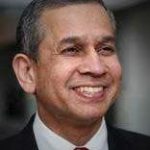 | Deepak Sharma | Director of the Center for Energy policy, University of Technology Sydney, Australia
Prof. Deepak Sharma is currently the Director of the Center for Energy policy (CEP) in the School of Systems, Management and Leadership, in the Faculty of Engineering and Information Technology. Prof. Sharma has been running numerous climate related projects covering a wide spectrum of research interests, ranging from Energy economics and policy, Institutional restructuring and decision processes, Energy market reforms, Infrastructure regulation, Environmental policy analysis, Energy-economy-environmental interactions, Energy-food-water security nexus, Institutional economics, and Political economy of infrastructure. | P3 | W4 |
 | Xiaoming Shi | Assistant Professor, Division of Environment and Sustainability and Department of Civil and Environmental Engineering, Hong Kong University of Science and Technology
Prof. Xiaoming Shi obtained his Ph.D. in Atmospheric Sciences from the University of Washington and worked as a postdoctoral scholar in the Department of Civil and Environmental Engineering at the University of California, Berkeley. He is mainly dynamicist and modeler. His research experience covers a wide range of topics in atmospheric science, including extreme precipitation, mountain meteorology, tropical circulation, turbulence modeling, and cloud simulation. He joined HKUST in 2018 and his work focuses on the prediction and understanding of weather extremes in a changing climate. He contributes to the regional climate community through developing advanced modeling tools and fundamental physical theories. | W1 |
 | Shun Chi-Ming | Director, Hong Kong Observatory, HKSAR Government
Appointed as Director of the Hong Kong Observatory in 2011, Mr Shun specialized in aeronautical meteorology since the 1990s and led a team of researchers to develop the world-first and award-winning Light Detection And Ranging (LIDAR) Windshear Alerting System for the Hong Kong International Airport. In the international arena, Mr Shun is President of the Commission for Aeronautical Meteorology (CAeM) of the UN World Meteorological Organization (WMO) – the first Chinese, and in fact also the first Asian, taking up this position in the WMO. Mr Shun is also Permanent Representative of Hong Kong, China with WMO and Chairman of the UN Economic and Social Commission for Asia and the Pacific (ESCAP) / WMO Typhoon Committee. He is also Chair of the Hong Kong Meteorological Society, Fellow of the Royal Meteorological Society (FRMetS) and Member of the Chinese Meteorological Society Executive Committee. | P1 |
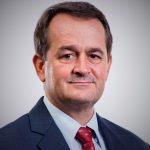 | Rick Truscott | Chief Operating Officer, CLP Power Hong Kong, Hong Kong
Mr. Truscott joined the CLP Group in 1999 as Business Development Manager for Southeast Asia, and was later appointed Senior Vice President for CLP Southeast Asia in Business Development. Previously Mr. Truscott served as the Senior Director as Senior Director - Power Systems in 2014 after serving as Director - Generation from 2011. He has more than 27 years of experience working in a variety of roles covering development, operations, financing, maintenance and construction in the power sector. Before joining the CLP Group, Mr. Truscott led development, acquisition and financing efforts for power projects in the Philippines, Indonesia, and Thailand.
| P3 |
 | Kam-Sing Wong | Secretary for the Environment, HKSAR Government, Hong Kong
Mr Kam-Sing Wong has been the Secretary for the Environment of the HKSARG since July 2012. An architect by profession, he has been promoting sustainable built environment since 1990s. He had served as the Vice Chairman of the Hong Kong Green Building Council, the Chairman of the Professional Green Building Council, the Vice-President of the Hong Kong Institute of Architects (HKIA) and the Chairman of the HKIA Committee on the Environment and Sustainable Development. Besides various award-winning green building projects, he has contributed to the development of local standards and guidelines for sustainable built environment. Under his leadership, the Environment Bureau of the HKSARG has introduced a number of policy blueprints to establish the direction, targets and timeline for policies on air quality, waste management, biodiversity, energy and climate change. He graduated from the University of Hong Kong. He further conducted post-graduate research study on sustainable built environment from the UBC in Canada. | P1 |
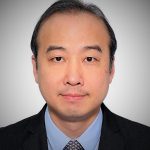 | Ricky Wong | Deputy Head of the Civil Engineering Office (Port and Land), Civil Engineering and Development Department, HKSAR Government
Ir Wong is a civil engineer by training and holds multi-disciplinary postgraduate degrees from Hong Kong, United States and Australia, including in Engineering, Coastal and Oceanographic Engineering, Environmental Engineering, and Business Administration and Finance. Ir Wong was a project engineer of the Port Works Division, Civil Engineering and Development Department, participating in reclamation, breakwater and pier planning and construction projects, and used to look after the construction and maintenance of port facilities and several reclamation projects in his position of Chief Engineer/Port Works in 2017. He was also involved in research and development to enhance the standards of marine structures design and maintenance; and their resilience under the effects of climate change.
| P2 |
 | Chris Zevenbergen | Professor of Flood Resilience of Urban Systems, IHE Delft Institute for Water Education, Netherlands
Chris Zevenbergen is a Professor at the Water Engineering Department of IHE Delft and at the Department of Hydraulic Engineering, Faculty of Civil Engineering of the TU Delft, The Netherlands. He is a visiting professor at the Southeast University (SEU), China. He is also Project Director of DeltaCap, a Capacity Development Program funded by the Dutch Government to support the implementation of the Delta Plan in Bangladesh, and of AFMA, a seven year SWF program to develop and implement Anticipatory Flood Risk Management in Alexandria, Egypt. He has a strong affinity with the ecological, socio-economic, institutional aspects of urban planning and water management. He has worked extensively on application of theories of resilience to flood risk management systems, including the theory of socio-ecological resilience. | P3 |
 | Limin Zhang | Professor of Geotechnical Engineering, The Hong Kong University of Science and Technology, Hong Kong
Limin Zhang is Professor of Geotechnical Engineering and Director of Geotechnical Centrifuge Facility at the Hong Kong University of Science and Technology, and Changjiang Scholars Chair Professor of Ministry of Education, China. He is a Fellow of the American Society of Civil Engineers, Editor-in-Chief of International Journal Georisk, Taylor & Francis, Associate Editor of ASCE’s Journal of Geotechnical and Geoenvironmental Engineering. Prof Zhang’s research areas include slopes and embankment dams, geotechnical risk assessment, reliability-based design, pile foundations, and centrifuge modelling. He has led a project on landslide risk assessment and risk-based design for the reconstruction of a major highway near the epicenter of the Wenchuan earthquake, and is leading a collaborative research project on coping with landslide risks in Hong Kong under extreme storms. | W2 |
 | Xuebin Zhang | Senior Research Scientist, CSIRO Oceans and Atmosphere, Australia
Dr. Xuebin Zhang is a Senior Research Scientist working at Australia CSIRO Oceans and Atmosphere Division. He obtained his Ph.D. in Oceanography from University of Washington (U.S.) and had his postdoctoral training at Scripps Institution of Oceanography (U.S.). In 2010, he joined CSIRO as a sea-level scientist, and has been actively working on sea-level rise, climate change and variability, ocean and climate modelling. He has published over 30 articles in high-profile professional journals, including three in the Nature publishing group. His works on sea-level rise have established him as an outstanding mid-career expert in the field. | P2 | W3 |